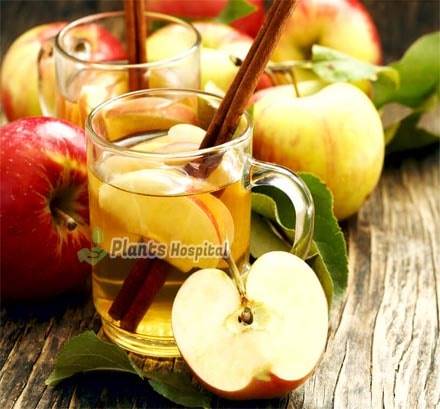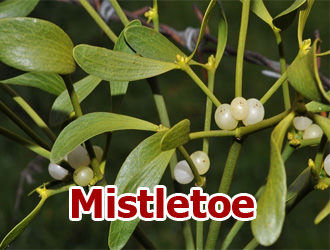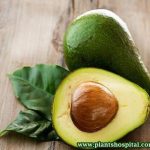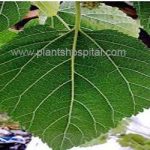Have you ever thought about which tea will help you sleep better? You tried some tea and plants, but you didn’t get the results you wanted? You may not have prepared the teas correctly.
Usually, people use shake teas sold at the market. If you can’t brew your tea, shake teas may be a good choice for you. In this case, you will need to pay attention to the preparation recommendation on the package.
Also, it is important to remember that teas are natural and harmless drinks. Therefore, you can consume with peace of mind without consulting your doctor.
Some medicines help sleep, but many of them have side effects and are addictive. For this reason, doctors do not recommend these drugs, except when necessary, and they recommend herbal treatment to people with sleep disorders.
- Top 10 Natural Foods to Beautify Your Skin (10 Super Foods)
- Bad Breath (Halitosis): Types, Diagnosis, Treatment, And More
- Sore Throat: Natural Home Remedies – What is Causes Sore Throat?
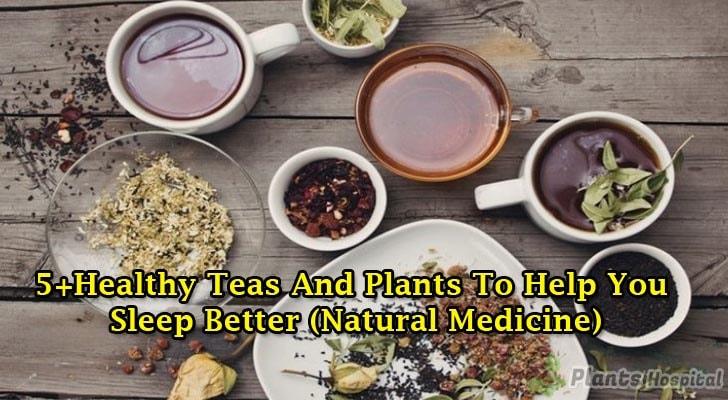
Table of Contents
How to Make Teas That Help You Sleep?
Some teas help you to fall asleep by relaxing the whole body. Contrary to what you think, you should consume tea at least an hour before bedtime, not just before bed.
First, heat 250ml (a glass) of water. When the water starts to boil, turn off the stove and put a teabag in it.
At this point, the brewing time is quite important. If 2 minutes are mentioned in the tea pack, you should not exceed this time. So you can take advantage of all the features of the tea and preserve the flavor of the tea.
You should not add sweeteners or sugar to tea, but you can add honey if you want. Another important point is choosing the right plants to help you sleep.
5+ Amazing Herbal Teas To Help You Sleep
Although you can find most of these plants in the form of capsules or drops, these plants have a relaxing effect on your body when consumed as a hot drink, such as tea. Below you can learn some of the herbs that will help you sleep.
1. Cat Grass Tea
Cat grass is one of the most important plants that helps to treat insomnia. This plant has relaxing effects that reduce anxiety levels by regulating nervous system cells.
2. Chamomile Tea
Chamomile is an invigorating, vein-expanding and antispasmodic plant. It has carminative and Hepatobiliary properties, helping the digestive system.
It also acts as a novelization and has excellent anti-inflammatory properties. Therefore, chamomile is one of the most widely used plants to resolve digestive problems.
3. Passion Flower Tea
Passionflower flower is rich in flavonoids and alkaloids. It contains gamma-aminobutyric acid, known as the neurotransmitter, which plays an important role in regulating muscle elasticity while relaxing your nerves on the other hand. If you don’t like the taste of this tea, you can try using it as aromatherapy.
4. St. John’s Wort Tea
St. John’s wort, a natural anti-inflammatory, contains vitamin C. In addition to containing many ingredients to help you sleep better, this herb is also an antidepressant that has been proven to be effective in treating mild to moderate depression and anxiety.
5. Lemongrass Tea
Lemongrass is a scientific name is Melissa, and it is one of the most effective plants in combating anxiety-related problems. You can drink a glass of lemongrass tea, which helps the digestive system to work better, after your last meal.
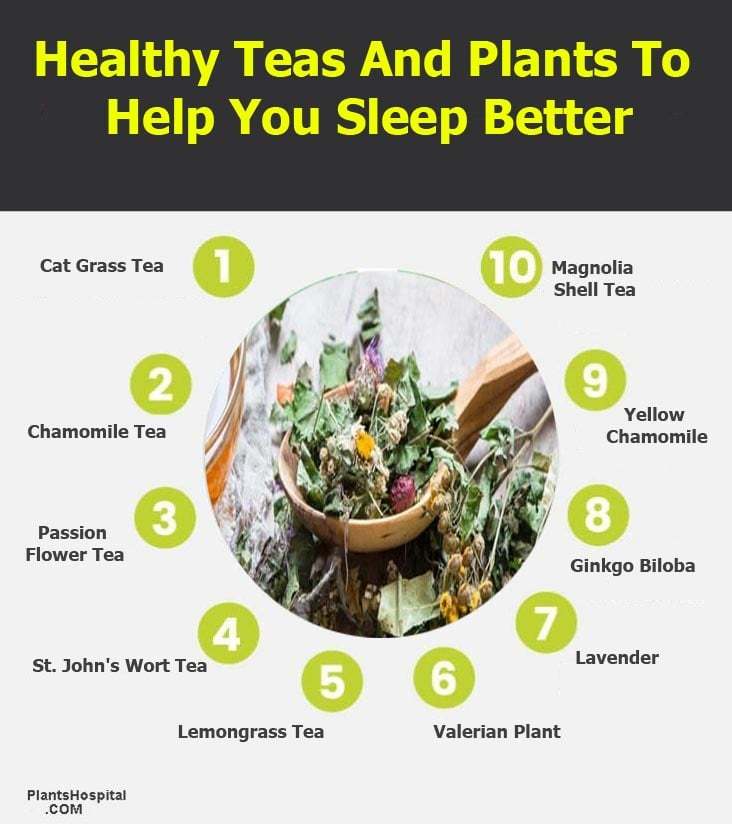
6 Best Medicinal Plants To Help You Sleep
1. Valerian Plant
As a result of different studies, valerian root has been proven to help fall asleep. Valerian root, which helps people sleep faster and healthier, is ideal for short-term use.
This herb, which has not been tested for long-term use, can help resolve the mild insomnia problem.
In most studies in people with sleep difficulties, 400-900 mg Valerian extract or 450-900 mg valerian root taken as capsules were found to be safe and effective. It is recommended to be taken 30 minutes to two hours before bedtime.
Read More: Valerian & Valerian Root Tea: Health Benefits, Uses, And Warnings
2. Lavender
Research has shown that smelling lavender oil 30 minutes before sleep positively affects sleep quality. Lavender is an effective sleep promoter that can be used especially by those suffering from mild insomnia, young people and women.
3. Ginkgo Biloba
This plant, which has many benefits, makes easier to fall asleep and reduces stress. Long-term use of Ginkgo Biloba, which has limited effects, is not recommended.
4. Yellow Chamomile
Chamomile is widely preferred by people who have trouble sleeping. Although it does not affect the sleep-aid chemicals in the brain, it will calm the person and facilitate falling asleep by preventing psychological factors such as stress and anxiety.
There are no side effects of chamomile, which has been proven to have a calming effect with many studies. People of all ages can use it safely.
5. Magnolia Shell Tea
The tea made from magnolia shell has been used in China for many years to treat many diseases. Now the whole world is consuming Magnolia tea to calm down and sleep better. Magnolia, thanks to the honokiol in it, reduces the time to fall asleep and helps to get a longer and deeper sleep.
6. Passion Flower
This plant, also called passionflower flower, has a mild soothing effect. The taste of passionflower, which is also included in some sleeping drugs in our country, is also preferred by people who have insomnia.
Advice To Sleep Better
In addition to consuming teas mentioned above, you can apply the following recommendations:
- Eat light things for dinner.
- Do not consume caffeine-containing beverages.
- Go to bed at the same time every night.
- Drink the tea at least one hour before the period you plan to sleep.
- When you feel that your sleep is coming to sleep, go to bed without waiting.
- It is very important not to disturb your sleep to prevent insomnia.


